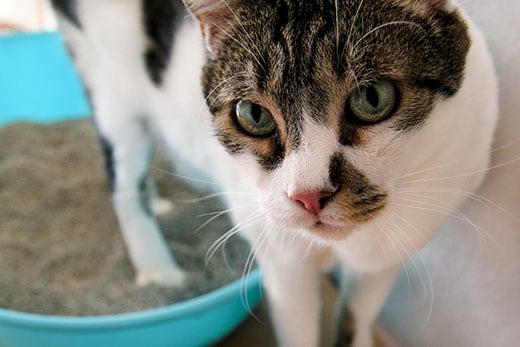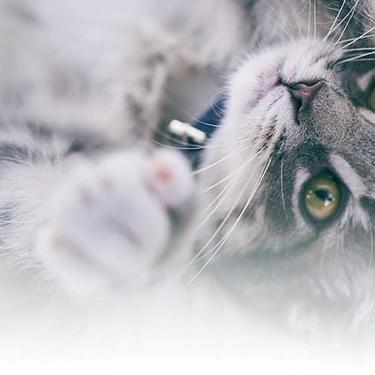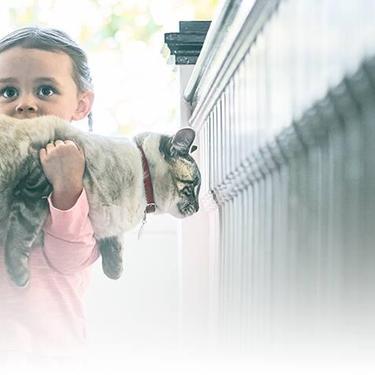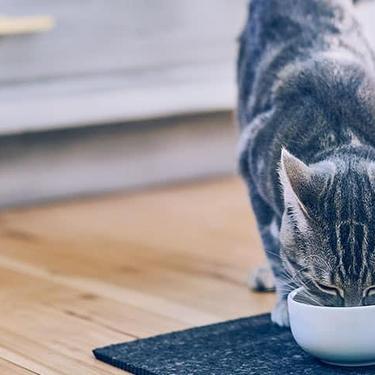
-
Find the right food for your petTake this quiz to see which food may be the best for your furry friend.Find the right food for your petTake this quiz to see which food may be the best for your furry friend.Health CategoryFeatured products
 Hill's Science Diet Adult Healthy Mobility Large Breed Chicken Meal, Barley & Brown Rice Recipe Dog Food
Hill's Science Diet Adult Healthy Mobility Large Breed Chicken Meal, Barley & Brown Rice Recipe Dog FoodAdvanced nutrition shown to support joint health and improve mobility
Shop Now Adult Large Breed Chicken & Barley Recipe Dog Food
Adult Large Breed Chicken & Barley Recipe Dog FoodSupports healthy joints, lean muscle, and beautiful coat for large breed dogs
Shop Now Adult Light Large Breed Chicken Meal & Barley Recipe Dog Food
Adult Light Large Breed Chicken Meal & Barley Recipe Dog FoodFewer calories for less active large breed dogs
Shop NowFeatured products Kitten Healthy Cuisine Tender Chicken & Rice Medley
Kitten Healthy Cuisine Tender Chicken & Rice MedleyDelicious tender chicken and rice in a mouthwatering sauce with precisely balanced nutrition to support 5 essential building blocks for lifelong health
Shop Now Adult Perfect Digestion Chicken, Barley & Whole Oats Recipe Cat Food
Adult Perfect Digestion Chicken, Barley & Whole Oats Recipe Cat FoodHill's Science Diet's breakthrough nutrition supports ultimate digestive well-being & healthy microbiome
Shop Now Adult Oral Care Chicken & Brown Rice Recipe Cat Food
Adult Oral Care Chicken & Brown Rice Recipe Cat FoodClinically proven kibble technology to reduce plaque & tartar build-up
Shop Now -
DogCat
- Cat Tips & Articles
-
Health Category
- Weight
- Skin & Food Sensitivities
- Urinary
- Digestive
- Kidney
- Dental
- Serious Illness
-
Life Stage
- Kitten Nutrition
- Adult Nutrition
Featured articles Fun Ideas for Kids and Pets This Summer
Fun Ideas for Kids and Pets This SummerOutdoor summer activities with your dog or cat can be fun for kids, too. Learn how they also teach kids responsibility & creates a bond with their pet.
Read More Cat vs. Dog: Which Is the Best Pet for Me?
Cat vs. Dog: Which Is the Best Pet for Me?Learn about important differences between dogs and cats, such as cost & space considerations. These factors can help you decide which pet is best for you.
Read More Adopting a Pet: What You Need to Know
Adopting a Pet: What You Need to KnowLearn the basics of adopting a pet, including where to begin and common questions you should ask yourself when deciding which kind of pet is best for you.
Read More -


If you have ever seen your cat peeing blood, you know just how alarming it can be. While it isn't something one ever hopes to witness, blood in cat urine is actually quite common. Hematuria, the scientific name for having blood in the urine, can be caused by abnormalities in the urinary tract or even disease processes elsewhere in the body that can affect the urinary tract or kidneys.
Blood in Cat Urine: Signs to Look For
While hematuria may be as obvious as blood or blood clots in the urine, it may not always be so visible. Most instances of hematuria are actually diagnosed at the microscopic level on what appears to be normal-colored urine; in these cases, there's only a small amount of blood. Hematuria may cause urine to turn pink or red.
According to the American Veterinary Medical Association, some of the other signs you may see along with a change in the urine's color include:
- Increased drinking
- Increased urination
- Straining to urinate
- Vocalizing when in the litter box
- Going in and out of the litter box repeatedly
- Urinary accidents outside of the litter box
- Inability to urinate altogether (a medical emergency)
- Bruising on the skin in the form of obvious bruises or small dots
- Bleeding from abnormal locations, such as the nose, gums, eyes, ears or rectum, and bloody vomit or feces

Causes of Blood in Urine
If reading these signs has sent you into a panic, take a deep breath. Some of these signs are not typically associated with blood in cat urine and are seen only with rare diseases. Most cases of hematuria in cats are the result of urinary illness and your veterinarian is the best person to help identify what and where exactly that source of illness is.
Your vet will start by taking a medical history of your cat and a physical exam. Some basic labwork for a cat peeing blood may include blood tests, such as a serum biochemistry panel and complete blood count (CBC), as well as an analysis of the urine. Depending on the potential underlying disease, your vet may recommend more specific lab tests, such as a panel to check for abnormalities in blood clotting. If your vet suspects a urinary tract infection, a urine culture test can help identify the specific bacteria that may be present. Abdominal X-rays or an abdominal ultrasound are often recommended to help identify urinary tract stones, tumors or other abnormalities that can cause a cat to peed blood, such as an inflamed bladder.
Most cases of hematuria in cats are due to FIC (feline idiopathic cystitis). Urinary tract infections are actually pretty rare among cats.


Tasty Tips
Cat Peeing Blood: Treatment
As with many diseases, treatment for blood in the urine varies depending on the exact cause. For example, kidney or bladder stones may sound like a complete diagnosis, but your vet needs to know what type of stones they're dealing with. Certain stones can be treated noninvasively with a therapeutic food that is capable of dissolving stones entirely. Some stone compositions are resistant to dissolution and will require surgery. Knowing as much as possible about the illness is critical to solving the problem.
Preventing Common Urinary Problems in Cats
You may have heard of a cat parent who struggled with their cat urinating inappropriately or perhaps you're a bit more acquainted with this yourself than you would like. Sometimes called feline lower urinary tract disease (FLUTD), this refers to a spectrum of different diseases that result in inappropriate urination from our feline roommates, explained the Cornell Feline Health Center. No one fully understands why these conditions develop or how to always successfully treat them. Here are two broad categories you can experiment with to prevent your cat from developing feline lower urinary tract signs (LUTS).
- Environment and stimulation: While you may think your house cat lives a cushy life, cats with lower urinary tract signs may disagree. Cats with FLUTD are prone to stress and are a bit higher maintenance than most cats. Giving the cat choices in terms of where to play, rest, eat and urinate can help to minimize stress. For example, each cat should have access to a private rest area, scratching posts and toys. Cats prone to stress often enjoy high perches to keep watch of their surroundings. Ideally provide one litter box for each cat, plus one extra. Cleaning the litter box daily is important for many cats with LUTS (and all cats, for that matter) because they may not want to use a dirty litter box, and therefore may find a cleaner (less optimal) place to do their business.
- Proper nutrition and hydration: The most important ways to help prevent lower urinary tract signs are proper nutrition and adequate water intake. Feeding wet foods is the number one way to improve overall water intake. Circulating water fountains may also be an option to encourage cats to drink more water to increase their water intake. The goal is to keep your cat well-hydrated so the urine is less concentrated and less prone to form crystals, which are the building blocks of stones.
Ensuring your cat eats a well-balanced food that's tested for its varying life stage (not simply "all" life stages) is very important. Some foods may have high levels of minerals that may contribute to the development of crystals and stones, which may contribute to lower urinary tract disease.
While cats with LUTS are common, if you ever notice a cat peeing blood, never make assumptions. Always seek veterinary care first to rule out treatable diseases, and remember that the inability to urinate is a life-threatening medical emergency.


Dr. Laci Schaible is a small animal veterinarian, veterinary journalist, and a thought leader in the industry. She received her Doctor of Veterinary Medicine from Texas A&M University and her Masters in Legal Studies from Wake Forest University.
Related products

Delicious roasted chicken and rice in a mouthwatering sauce

Clinically proven kibble technology to reduce plaque & tartar build-up

Hill's Science Diet's breakthrough nutrition supports ultimate digestive well-being & healthy microbiome

Delicious tender chicken and rice in a mouthwatering sauce with precisely balanced nutrition to support 5 essential building blocks for lifelong health
Related articles

Get helpful information on proper feline oral healthcare and why it's so vital to take care of your cat's teeth.

Obesity affects more than 30 percent of cats in America. Learn how you can properly feed and exercise your cat to improve its weight management.

Provide the best possible treatment for cats with sensitive skin by spotting the signs, knowing the causes, and understanding the remedies. Learn more now.

Understand the symptoms of a chronic upset stomach in your cat, and learn how to help sooth their discomfort.

Put your cat on a diet without them knowing
Our low calorie formula helps you control your cat's weight. It's packed with high-quality protein for building lean muscles, and made with purposeful ingredients for a flavorful, nutritious meal. Clinically proven antioxidants, Vitamin C+E, help promote a healthy immune system.
Put your cat on a diet without them knowing
Our low calorie formula helps you control your cat's weight. It's packed with high-quality protein for building lean muscles, and made with purposeful ingredients for a flavorful, nutritious meal. Clinically proven antioxidants, Vitamin C+E, help promote a healthy immune system.

